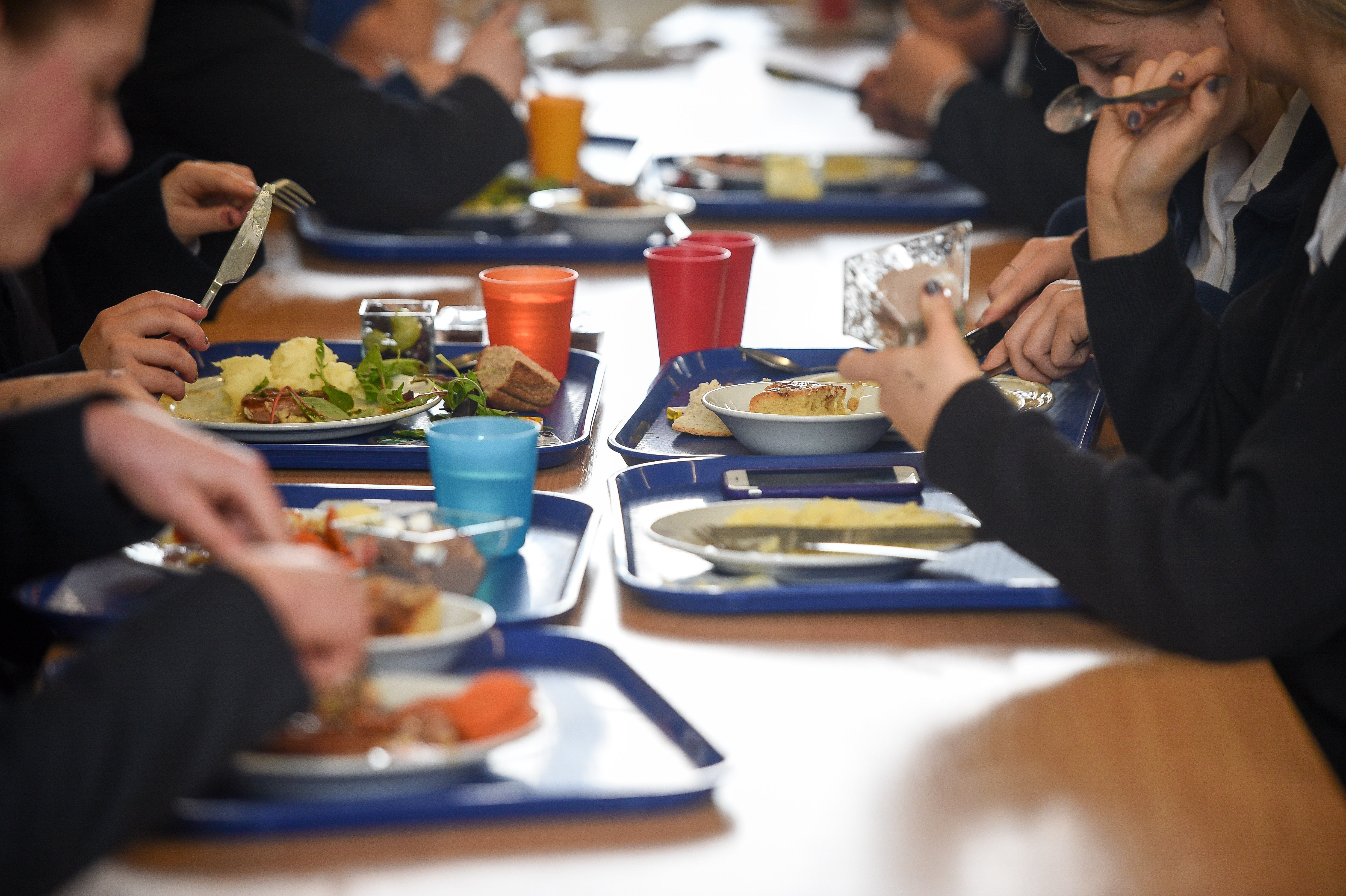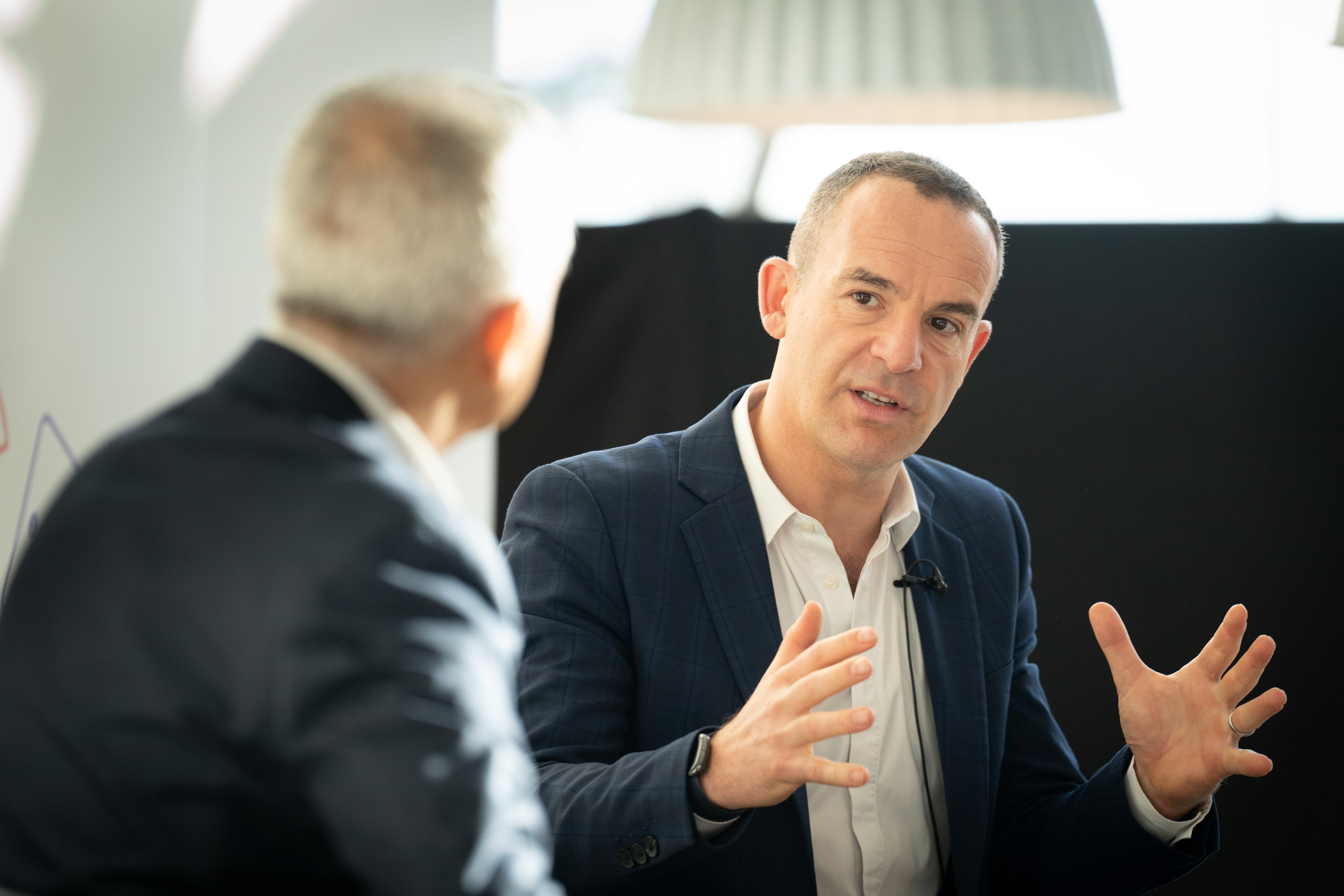1m more people living in poverty in UK as scale of crisis laid bare
Consumer champion Martin Lewis says he is ‘out of tools’ to help the UK’s poorest as report highlights deepening destitution
Your support helps us to tell the story
From reproductive rights to climate change to Big Tech, The Independent is on the ground when the story is developing. Whether it's investigating the financials of Elon Musk's pro-Trump PAC or producing our latest documentary, 'The A Word', which shines a light on the American women fighting for reproductive rights, we know how important it is to parse out the facts from the messaging.
At such a critical moment in US history, we need reporters on the ground. Your donation allows us to keep sending journalists to speak to both sides of the story.
The Independent is trusted by Americans across the entire political spectrum. And unlike many other quality news outlets, we choose not to lock Americans out of our reporting and analysis with paywalls. We believe quality journalism should be available to everyone, paid for by those who can afford it.
Your support makes all the difference.A million more people are living in poverty in the UK compared to a year ago, according to analysis that lays bare the deepening cost of living crisis in Britain.
A total of 14.4 million people were estimated to be in poverty in the UK in 2021-22 – including 4.2 million children – with an increasing number unable to afford food or pay their energy bills, an analysis by the Joseph Rowntree Foundation has found. This is up from a total of 13.4 million people – including 3.9 million children – the year before.
In a situation described as “social failure at scale”, 6 million are living in very deep poverty – defined as being below 40 per cent of the median income after housing costs. For example, a couple with two children aged under 14 is defined as being in very deep poverty if their household income is below £14,600.
Families told how they were struggling to eat healthily because they cannot afford basic food while frontline workers said families were trapped at home because they could not afford to leave the house.
Charities hit out at the findings, with Action for Children saying that millions are “needlessly suffering the misery of hardship”. Consumer champion Martin Lewis said the report must prompt policymakers and regulators to “sit up [and] take note”.

The Independent can also report that:
- Six million of the poorest people in the UK would need to double their incomes to escape poverty
- Almost two-thirds (64 per cent) of adults in poverty live in working households – a rise from 61 per cent the previous year
- More than one in five people in the UK – and three in 10 children – were living in poverty in 2021-22, according to the Joseph Rowntree Foundation (JRF) estimates
- More than 2 million people will have their gas and electricity cut off this winter because they cannot afford to top up their prepayment meter
Being in poverty is defined by the JRF as having an income, after housing costs, of less than 60 per cent of the average income for your personal familial set-up.
For a couple who have one child older than 14 and one younger, a household income that is less than £25,300 would count as in poverty. To be in very deep poverty, the threshold falls to £16,900.
For a lone parent with two children, one aged 14 and one under 14, the income threshold is £18,800.
A poor couple with two children under 14 would need an extra £6,200 per year to get their heads above water, and those in very deep poverty would need £12,800, the charity has estimated based on household income data from the Department of Work and Pensions.
Mr Lewis said: “I warned at the start of the energy crisis that I was out of tools to help many on the lowest incomes.
“Now we have hit the stark reality that 100,000s of people in the UK, even after they’ve had professional help from charities, are still deficit budgeting – so their income is less than their minimum necessary expenditure.” He said the research “smells like a clear indication the problem is getting worse”.
The report comes after the latest data from Citizens Advice showed that 200,000 people had come to them for crisis support, such as a referral to a food bank or emergency funds, in the year 2023 – triple the number in 2019.
The charity also estimates that some 800,000 people went for more than 24 hours without gas or electricity last year because they could not afford to top up, leaving them unable to make a hot meal or take a warm shower.
One family member hit by the cost of living crisis, who is being supported by children’s charity Buttle UK, said: “I have four children that live with me and one that is older and has already spread her wings. Money has always been tight but with this cost of living crisis it is unbearable. Most of my universal credit goes on gas and electricity and that goes up every month.”

One frontline worker said she was seeing families who are “spending more and more time in their homes or on the streets as they can’t afford to do anything or go anywhere”. Another said: “Children are often going to school hungry and it is uncertain whether they will get a warm meal every day as some are not even entitled to free school meals due to parents income.”
Another family support worker said: “Where a parent would be able to get a bus to take their child to school, now has to decide whether to keep the child off school to get milk and bread with the money that would have been spent on bus fares.” Another said the houses they were visiting on their home visits were always cold as the parents couldn’t afford heating, and their children – especially babies – were getting chest infections.
Liz Kendall, Labour’s shadow work and pensions secretary, responded to the report saying it was “time for change”, adding: “One in five people trapped in poverty is the devastating consequence of 14 years of Tory failure. Families across the country are being pushed into poverty by a government that has crashed the economy and unleashed a cost of living crisis.”
Joseph Howes, CEO of Buttle UK, said that the JRF’s research was “the latest piece of damning evidence of the state of child poverty in the UK”.
Liberal Democrat Treasury spokesperson, Sarah Olney MP, said: “This Conservative government has utterly failed in giving people the economic security that they deserve.
“It is Conservative Party decisions that caused rent prices to spiral, the cost of a weekly shop to go through the roof and the economy to stagnate.”
Paul Kissack, JRF group chief executive, said poverty has deepened over the last two decades, adding: “The visceral signs of hardship and destitution are all around us – from rocketing use of foodbanks to growing numbers of homeless families. This is social failure at scale.”
Meanwhile, Paul Carberry, chief executive of Action for Children, added: “The UK government’s number one priority should be fixing its failing approach to tackling poverty, which is hurting children the most. Only the ministerial will to make the right long-term decisions will help them.”
And Mark Russell, at The Children’s Society, said the depth of child poverty in the UK was “outrageous”, adding it was having a “devastating impact on children’s lives”.
A government spokesperson said: “We are continuing to support families with the cost of living backed by over £100bn – and there are 1.7 million fewer people living in absolute poverty in the UK, including 400,000 children, compared to 2010.
“Children are five times less likely to experience poverty living in a household where a parent works. That’s why we are investing billions breaking down barriers to work and supporting over 1 million low-income earners through our In Work Progression offer – all while cutting taxes and curbing inflation so hard-working people have more money in their pocket.”

Join our commenting forum
Join thought-provoking conversations, follow other Independent readers and see their replies
Comments